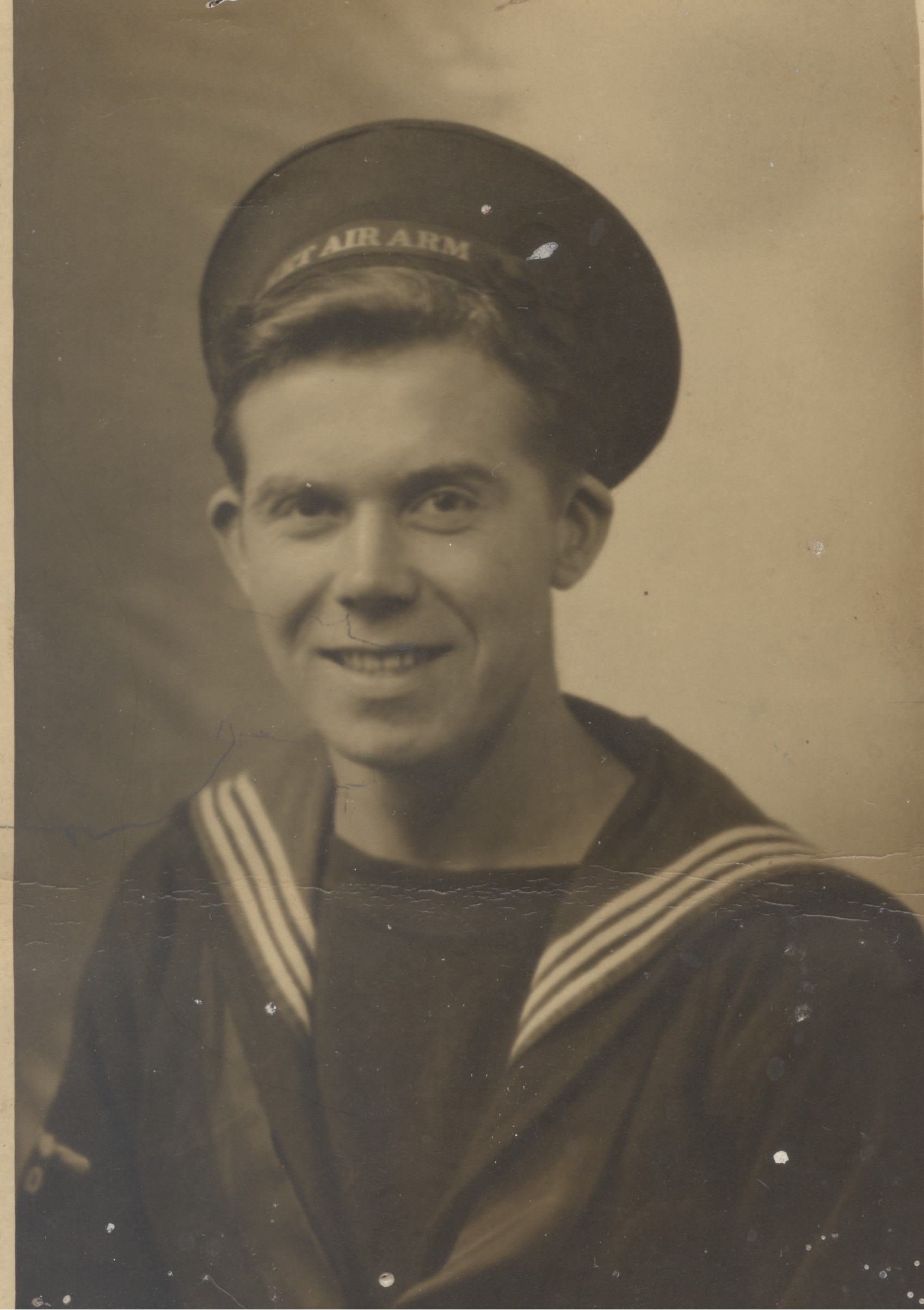
Menu
- 10am - 4pm, Mon to Sat
- Adults: £8 Under 18s: £4
- Under 12s/members: FREE
- Pensioners/students £7
- Birchburn, Scotland
- 01445 731137
- JustGiving

Written by Lynn Thornhill (daughter)
My father, Don Sherrard (1923-2012) was conscripted at the age of 18 in 1942 and joined the Fleet Air Arm in August of that year. Suddenly, he was no longer the boy from Wiltshire who had a love for nature. He trained as an Air Mechanic as part of Squadron 813 at Machrihanish. Along with the Swordfish aircrafts he was deployed onto the Aircraft Carriers as part of the Russian Convoys. He sailed on a number of different ships, but the principal one that he eventually sailed on was HMS Campania from June 1944 to March 1945 followed by a number of various ships including HMS Vertex.
Just like others, he would not talk much about what happened, but I know that he at times felt terrified, at times horrified and inside him lay memories that were highly traumatic. However, my father did write about some of his experiences and what follows. in his own words, are some of the events that he witnessed or took part in.
‘Our own air borne fighters were sometimes shot at by ‘friendly fire’ as it was very difficult, in the often-dark skies, to tell the difference. One of ours was shot down by one of the ships in our convoy and pancaked into the sea. Our pilot climbed out onto the wing only to be shot at again. They missed, and luckily a Destroyer picked him up and transferred him back to us later. Another of our fighters was hit and managed to land on deck. I dug some shrapnel out of the engine and gave it to the pilot as a souvenir.
When there wasn’t huge amounts of ice that had to be cleared away, there were times when giant waves crashed onto the flight deck. During one of these times, on HMS Campania, the 40mm x 4 Pom Pom guns were smashed off our starboard. We went without them on the next trip. Another time I was on the flight deck when coming out of the Kola inlet on our way back, and I was looking at the HMS Bluebell in front of us when she was suddenly hit and blown to pieces.
Another time was when a submarine suddenly surfaced close to us, so one of our Swordfish planes was loaded with everything and it headed for take-off. However, as the plane reached the end of the flight deck, he fired his take-off rockets but they didn’t work and he went straight off the bows into the sea. Campania had to full Astern and hard to Port to miss him but he was rescued. Meanwhile we chucked everything into the sea including bean tins to try and keep the sub down.’
The final piece of dad’s that I want to relate more or less sums up his feelings. Feelings that he kept hidden. And although it is just one of his experiences, it acted as a trigger for bringing to his mind everything that he went through. I first overheard him tell this story, full of emotion, to my mother when I was a child. He never mentioned it again until he told me just before he passed away.
‘One Ju88 (the Junkers is a German World War II Luftwaffe) crossed our bows after dropping torpedoes (which missed) and our gunners hit the bomber with A.A. fire. I was on the deck and I could see the crew as it crashed into the sea very close by. It was so close that a young man made eye contact with me and raised his hand in a salute before hitting the water.’
This event, along with others, had obviously made a huge impact on my father and was something that he could never forget.
Donald received the ‘Arctic Star’ posthumously in 2014
The second image shows Dad standing in the back row second from right, with others in the 813 Squadron
The third image shows my dad standing on the far left, in the back row. In front of the group lies a ‘Rocket’ that the planes would use to assist take off from the deck and is mentioned in one of dad’s stories. The rockets were known as RATOG (Rocket Assisted Take Off Gear).
Click to expand photos